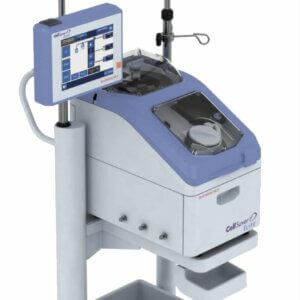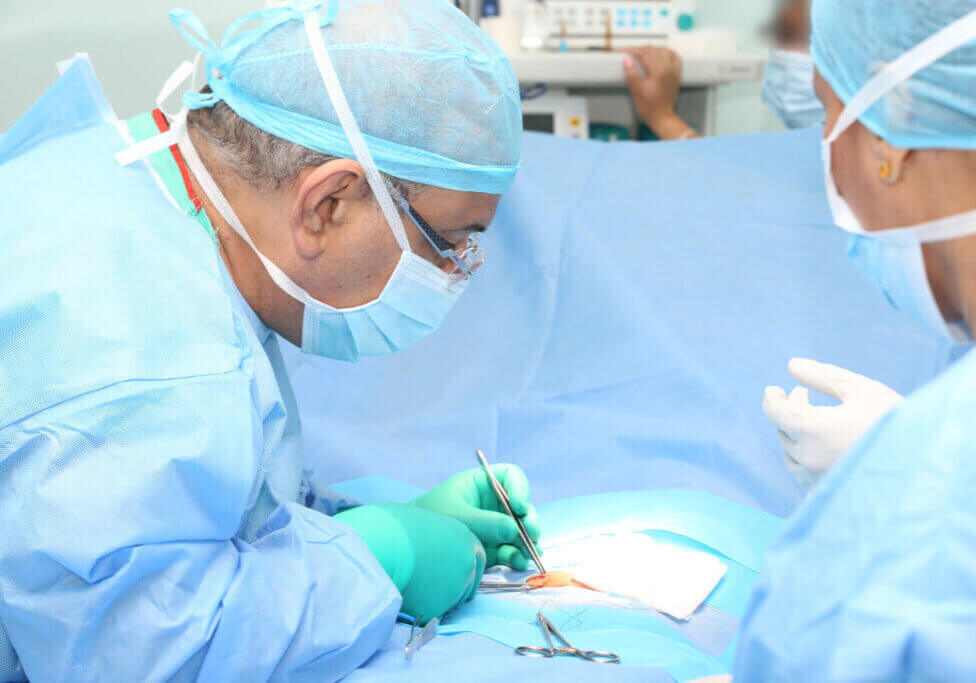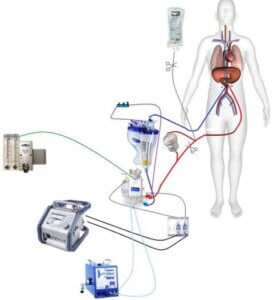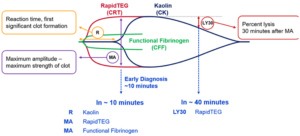Maximizing Safety and Outcomes in ALIF Procedures: The Importance of Autotransfusion (Cell Saver)
Maximizing Safety and Outcomes in ALIF Procedures: The Importance of Autotransfusion (Cell Saver)
Autotransfusion, also known as cell saver or cell salvage, is a commonly used technique in spine procedures, particularly in Anterior Lumbar Interbody Fusion (ALIF) surgeries. The procedure involves salvaging the patient's own blood during surgery and giving it back to them to minimize blood loss and maintain normal hematocrit levels. In this blog post, we will delve into the details of autotransfusion in ALIF procedures and why such a significant amount of blood is lost during these surgeries.
Anterior Lumbar Interbody Fusion (ALIF) is a surgical procedure that is performed to treat spinal disorders such as herniated discs, degenerative disc disease, and spinal stenosis. The procedure involves making an incision in the abdomen and accessing the spine from the front to insert a spinal implant. The implant provides stability to the spinal column and helps to relieve pressure on the nerve roots. 
However, ALIF procedures are known to cause significant blood loss, making it necessary to use autotransfusion to minimize the amount of blood that is lost. During surgery, blood is collected from the surgical site and processed through a cell saver machine, which separates the red blood cells from the other components. The red blood cells are then returned to the patient through a transfusion. This helps to maintain the patient's hematocrit levels, which are critical to ensuring proper oxygenation and reducing the risk of complications.
There are several reasons why ALIF procedures result in significant blood loss. Firstly, the procedure is performed through an incision in the abdomen, which means that it has a larger surgical site compared to other spinal procedures. This results in a larger amount of blood being lost during the procedure. Secondly, the procedure involves cutting through muscle and tissue, which leads to increased bleeding. Additionally, the insertion of a spinal implant can also cause damage to the surrounding tissue, leading to further blood loss.
The use of autotransfusion in ALIF procedures has several advantages. Firstly, it allows the patient to receive their own blood, which is considered to be safer than receiving blood from a donor. The patient's own blood is less likely to cause an adverse reaction and is less likely to transmit diseases. Secondly, autotransfusion reduces the need for blood transfusions from donors, which helps to conserve the blood supply and reduce the risk of blood-borne diseases.
In addition to these benefits, autotransfusion also helps to reduce the risk of anemia, which is a condition in which the body does not have enough red blood cells to carry adequate oxygen to the tissues. Anemia can result in fatigue, weakness, and increased risk of infection. Autotransfusion helps to prevent anemia by returning the patient's red blood cells back to them during surgery, which helps to maintain their hematocrit levels.
There are some risks associated with autotransfusion, however, these are generally rare. The risks include transfusion reactions, such as allergic reactions, and the transmission of diseases. It is important to note that the use of cell saver machines and other autotransfusion equipment is regulated by the FDA, and the machines are subject to rigorous testing to ensure their safety and effectiveness.
To recap, autotransfusion, also known as cell saver or cell salvage, is an important tool in minimizing blood loss during ALIF procedures. The procedure allows the patient to receive their own blood during surgery, reducing the risk of adverse reactions and disease transmission. Additionally, autotransfusion helps to conserve the blood supply and reduce the risk of anemia. If you are scheduled for an ALIF procedure, it is important to discuss the use of autotransfusion with your surgeon to ensure that you fully understand the benefits and risks of the procedure.
In conclusion, autotransfusion is a valuable tool in minimizing blood loss during ALIF procedures, and it plays an important role in ensuring patient safety and optimizing outcomes. By understanding the benefits and risks of autotransfusion and working closely with your surgeon, you can help ensure that you have a safe and successful ALIF procedure.
Contact Us
Let us provide the Autotransfusion Services you need.
Our unique ability to provide immediate Autotransfusionist services, bolstered by our successful track record in staffing health systems around the country makes us an enviable blood management partner.





